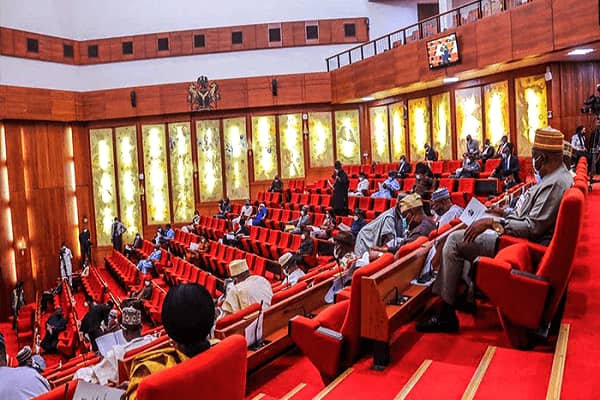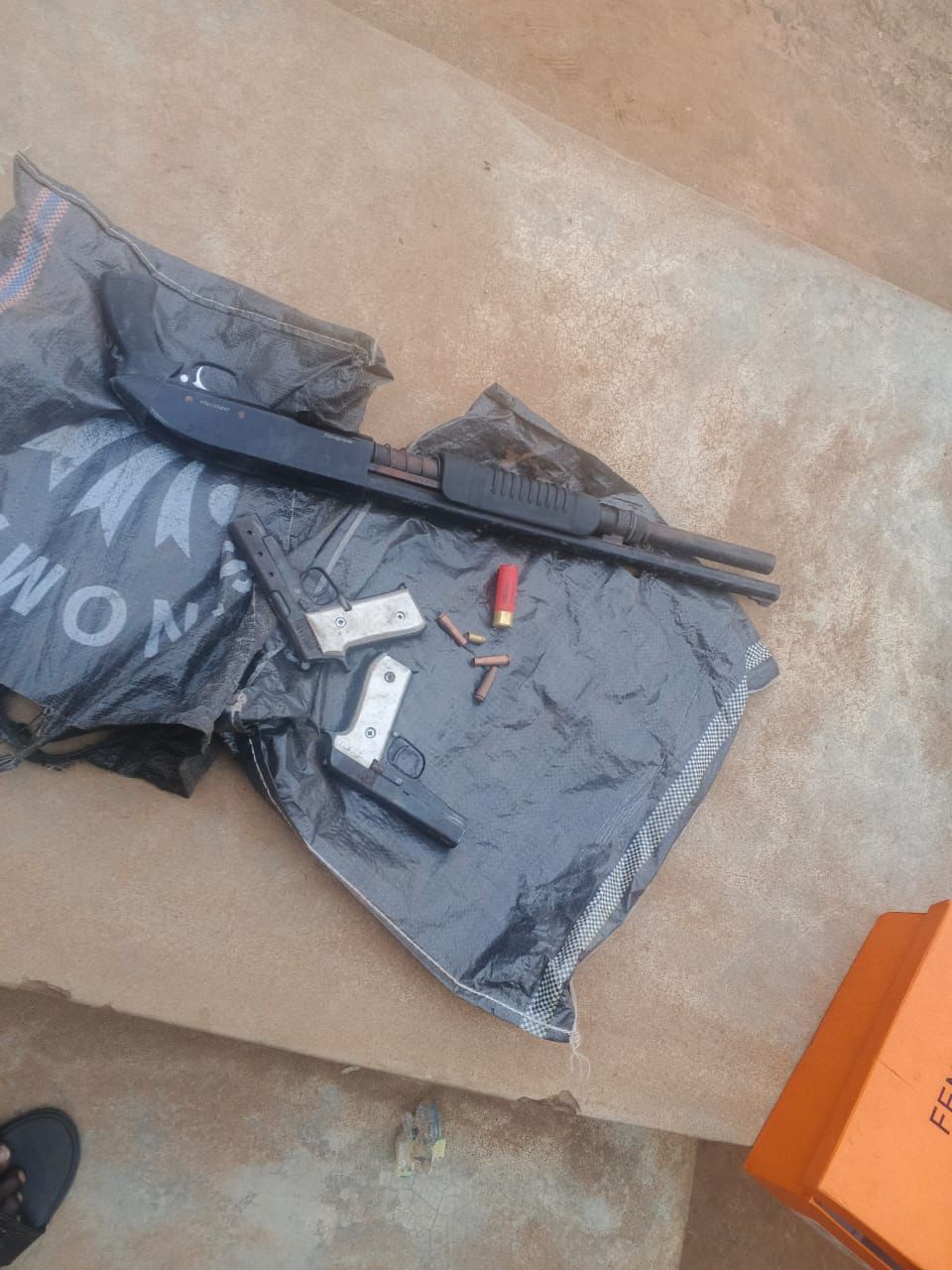As part of efforts to address the food crisis in the country, the Federal Government is sending 60 trucks of fertiliser to each of the states of the federation.
Each of the 109 senators will also receive two trucks of fertiliser for distribution to farmers in their constituents, while the 360 members of the House of Representatives will get one truck each to distribute in their constituencies.
The Senate, which disclosed the plan on Tuesday while debating on the food crisis at plenary, called on the Federal Government to expedite action on the fertiliser distribution.
The call followed a motion moved by Senator Sunday Karimi, representing Kogi West and co-sponsored by Senator Ali Ndume of Borno South at the Tuesday plenary.
The motion titled, “Urgent Need to Address Food Insecurity and Market Exploitation of Consumables In Nigeria,” noted that in the last few months, the price of goods and household consumables had been on an abysmal rise in the country, leading to a high rate of inflation, weakened buying power, and general worsening of living conditions of the vast majority of Nigerians.
Karimi further noted that the latest data released by Nigeria’s National Bureau of Statistics showed that “food inflation in the country skyrocketed to 40.66 per cent on a year-on-year basis, a significant increase from the 24.82 per cent recorded in May 2023.
“The current market price of food items such as beans, maize, rice paddy, yam, tomatoes, and onions, which initially rose by about 40 per cent after the removal of petroleum subsidy, has now increased to over 100 – 300 per cent without any attributable reason for the increase in prices.”
He added, “Although insecurity in food-producing regions, bad roads, increase in the cost of transportation attributable to the removal of fuel subsidy and depreciation of the value of naira are possible factors that have contributed to the increase in price of food items, household commodities, and consumables; the percentage of increase in cost of transportation and some under factors listed above is significantly less than the percentage increase in the current prices of goods all ever the country.”
Karimi lamented that all efforts made by the Federal Government to arrest the consistent increase in food inflation had not yielded the desired results.
“There is a need to be more pragmatic about addressing food insecurity, curbing herder-farmer crises, kidnapping for ransom, and terrorism, and ensure the development of a viable National Commodity Board to regulate the price of grains and ensure the elimination of artificial contributions to food and commodity inflation in Nigeria,” he said.
In his contribution, Senator Ndume lamented that this was the first time Nigeria was listed as one of the countries battling food insecurity.
He said, “Currently there are four countries, including Sudan and some others, that are facing very serious insecurity. Nigeria is added to this list this year by the International Rescue Committee as one of the spots for food insecurity action against hunger. World Food Programme also indicated that over 32 million people are expected to face a critical hunger crisis and emerging level between July and August.
“I don’t know about some other colleagues, but here in the North, we have started seeing it visibly. This is the first time we are experiencing this level of hunger. It’s the first time Nigeria is being listed as one of the countries with food insecurity.”
In his comments, former senate President, Ahmad Lawan, noted that the Nigerians had been extremely patient but for how long he couldn’t guarantee.
He said, “Our constituents are facing real anger. I travelled to states, that’s within the northern states and I’ve seen firsthand how people, especially those who are neither in the civil service nor in any business common everyday constituents, are suffering, fighting, struggling to have food even once in a day under normal circumstances.
“In the rainy season from maybe June up to September or October pending when there will be harvests, but now, the silos are empty, we don’t have anything in the silos.”
Lawan added, “In today’s national dailies, it is written that the Federal Government is considering reducing or removing taxes on imported foodstuff.
“Here’s the catch. This Senate must immediately engage the executive. What are the issues? Which taxes are they talking about? Because we should be seen doing the right thing. We have little or nothing in our food reserve across the country and nobody to come and tell us they will distribute foodstuffs from our silos. The silos are empty.
“So it means we have to import food. And if we have to import, it means we need foreign exchange. This is why we have to engage with the executive. We have to help the administration.
“If we don’t take immediate action and our citizens under this situation of increased foreign price, increased electricity price, increased everything, and we are yet to get the right measures to provide food for our citizens, we wouldn’t like the kind of thing that we’d see on our streets.”
The former Senate President warned, “It is time that we take every possible action together with the government to ensure that food flows in our country.
“The government must be entirely responsible because we cannot take people for granted for too long. People have come almost to the end of their patience.”
“The 1,200 bags of fertilizers (two trucks), the government wants to give each of the Senators for distribution to constituents, should be done fast as further delay, we render the intervention, useless,” he said.
In his contribution, the Chairman, Senate Committee on Agriculture and Food Security, Senator Saliu Mustapha ( APC Kwara Central ), informed the Senate that the “Federal Government is already sending 60 trucks of fertilizers to each state of the federation, two trucks to each of the 109 Senatorial Districts and one truck to each of the 360 federal constituencies.”
The Senate President, Godswill Akpabio in his remarks, said the food crisis facing the nation today, was a calamity foretold through insurgency, banditry and kidnapping, with attendant abandonment of farming by farmers.
Reiterating Senator Mustapha, the Senate President said that the distribution of the fertilizers must be properly monitored and ensure that it got to the appropriate quarters.
He said, “I have been informed by the Chairman, Senate Committee on Agriculture and the Deputy Senate president, that 60 trucks of fertilizers are to be distributed to stage governors and they should be distributed to people irrespective of their political parties.”
The Senate, after that, urged the Federal government as a matter of urgency address the food crises across the country.
Food Crisis: FG Sends 2,700 Fertiliser Trucks To States




